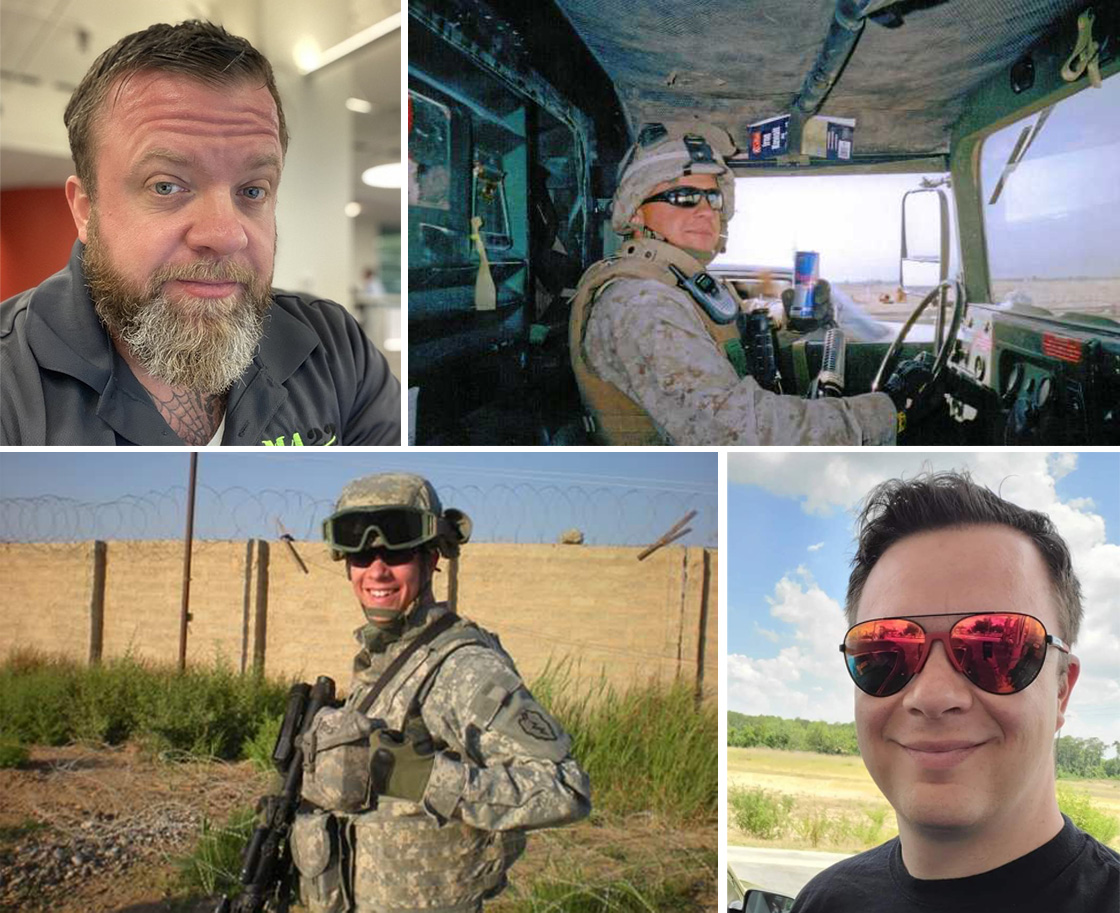
Military veterans and GSA inspire others to seek help
Post filed in: Equity
Going from operating in a combat zone to civilian work in a GSA office can be quite the challenging culture shift. But veterans who went through it, especially those with service-related disabilities, want to let others know they are not alone.
“My supervisor understands where I come from – as a combat vet – and that sometimes I may react from past combat experiences,’” said Dennis Addesso, a Workplace Services Specialist based in Philadelphia who has been public about his disability and his journey.
“In my first couple years, my supervisor put me at ease,” Addesso said. “He said I didn’t need to approach office conflicts at the same level as being ambushed in a warzone. He could have easily reprimanded me for overreacting to a situation but instead he took the time to understand where I came from. That meant the world to me.”
Addesso served five years in the Marine Corps, including two combat tours in Iraq.
According to the Department of Veterans Affairs National Center for PTSD, traumatic events such as war, violence or abuse can lead to PTSD. Anger, depression, substance abuse, grief, sleep problems are all PTSD-related problems. For some people, PTSD symptoms may start later, or they may come and go over time, according to the VA. Addesso said he suffered from some of those symptoms before getting help.
“I have combat post-traumatic stress disorder. I wasn’t aware I had it until a few years after I got out of the Marine Corps,” he said.
Addesso got help through therapy, refinding his faith and even co-founding an organization that helps veterans, telling his own story along the way.
Adam Winchester, an Army veteran who has PTSD and a mild traumatic brain injury, said he experienced a lot of the same things Addesso did. Sharing experiences with other veterans is a step in the right direction towards getting help, he said.
“Veterans definitely do wear our hearts on our sleeves. But there is a purpose behind that,” said Winchester, a program analyst with GSA’s Fleet Management. “When you share your experiences and your traumas and disabilities, you’re able to build that support network of other disabled veterans.”
Of the nearly 12,500 GSA employees onboard, about a quarter of them are military veterans, as of April 2023. Of those veterans, nearly 5% have identified as service-disabled veterans. Across the federal government, veterans now make up more than 31% of the federal workforce, and over 19% are disabled veterans, according to the Office of Personnel Management.
“GSA is a great way for a veteran to continue to serve their country, just in a different manner,” said Merrick Krause, Deputy Chief Human Capital Officer and Director, and an Air Force retired colonel. Krause is the executive sponsor for the GSA Persons with Disabilities Special Emphasis Program.
“Because GSA also has a large and active persons with disabilities employee program, we offer events and training to our entire GSA community so managers and coworkers are more able to relate to challenges veterans and disabled veterans might experience,” Krause said.
GSA’s Veterans Employee Resources Association (VERA) typically focuses on veteran-specific programs such as the military buyback program or changes in military disability compensation laws. However, they also host events and discussions open to the entire GSA workforce.
Before Memorial Day this year, VERA and the Persons with Disabilities Special Emphasis Program held a special joint panel discussion that was accessible in real time by the entire GSA community. Veterans from all services shared their personal experiences and journeys working at GSA while dealing with service connected disabilities.
“There can be a hesitancy to give voice to one’s disability since the military has a ‘suck it up’ mentality,” said Evan Farley, VERA’s Executive Champion and a retired Navy Commander, during that discussion. “It’s hard to have a mindset that accessibility tools are not a level up but a leveler. There can be discomfort in asking for help.”
Both Addesso and Winchester opened up about their disabilities during that event and said communication is key when working with someone with a disability.
Communication, along with patience and understanding, has been key to his work at GSA, Winchester said. By the nature of his disabilities, particularly with his memory issues resulting from his traumatic brain injury, he said it does take him extra time to learn a new skill or to fulfill a task. Once he sat down and explained that to his colleagues and supervisors, it was usually pretty smooth sailing, he said.

 U.S. General Services Administration
U.S. General Services Administration
